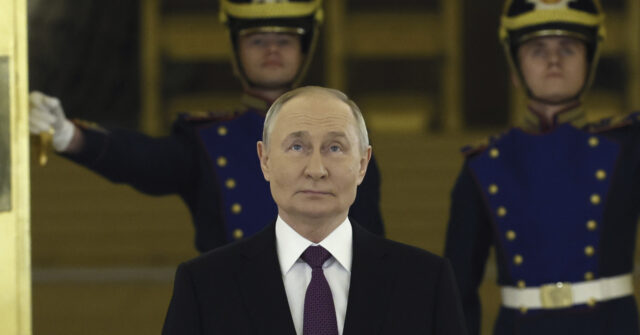In the wake of Donald Trump’s election victory, Russian President Vladimir Putin has opted not to extend congratulations, reflecting the precarious state of U.S.-Russian relations, which are considered to be at a historic low. Dmitry Peskov, Putin’s spokesman, articulated this sentiment by highlighting the adversarial nature of U.S. involvement in conflicts perceived by Russia as directly threatening its sovereignty. The Kremlin, acknowledging its stance as an “unfriendly country,” seems resigned to a deterioration of diplomatic ties, so much so that further degradation may feel impossible for Moscow. This context sets the stage for how Russia will engage with the incoming U.S. administration when President Trump officially resumes office in January 2025.
While European leaders and other global figures have largely expressed a mix of congratulations and strategic positioning regarding Trump’s second term, Russian officials have adopted a tone of detachment. Valentina Matviyenko, the Speaker of Russia’s Federation Council, indicated that the outcome of the U.S. election would not significantly impact Russia’s national interests. Nevertheless, Trump’s stance on international issues, especially the conflict in Ukraine, remains a focal point. Trump himself has previously articulated a desire to forge peace in Ukraine swiftly, showcasing a willingness to engage directly with both Putin and Ukrainian President Volodymyr Zelenskyy.
Trump’s ambitious goal of brokering peace in Ukraine reveals his intent to prioritize this issue immediately upon taking office, even hinting at a desire to achieve resolution before formally assuming the presidency. His previous statements to media outlets underline a commitment to stopping the “death” and “destruction” wrought by the ongoing conflict. The ex-president’s vivid descriptions of the devastation in Ukraine underscore his urgency, as he laments the ruins of cities that have suffered from extensive military actions. Trump’s assertions indicate a belief that his personal relationships with both leaders provide him a unique advantage in negotiations aimed at resolving longstanding tensions.
Moreover, despite the Kremlin’s official stance of aloofness, there are insinuations that behind the scenes, Putin and his allies may have already celebrated Trump’s success quietly. Reports from a British newspaper, citing a Russian opposition outlet, suggest private communications of congratulations, although these claims lack substantiation. This possibly contradictory behavior reflects a complex and strategic approach to U.S.-Russian interactions, suggesting that while open congratulation may be avoided in the public sphere, there are tacit acknowledgments of Trump’s potential as a bargaining counterpart.
Despite Russia’s resounding silence on the election results, many analysts observe that the geopolitical landscape will likely remain influenced by Trump’s policies, particularly concerning Ukraine. Trump’s approach to foreign affairs has historically leaned towards negotiation over confrontation, a method that may offer a pathway for dialogue in a region fraught with animosity. However, skepticism surrounds how effective he can be in disentangling the complicated web of interests that define U.S.-Russia relations, especially given the constraints imposed by Congress and shifting international alliances.
As Russia grapples with the implications of Trump’s electoral victory, the future of U.S.-Russian relations hangs in the balance. With a potential for renewed dialogue, characterizing this chapter will depend on the actions and statements from Trump’s incoming administration. The Kremlin has expressed tentative openness to constructive engagement, albeit with cautious groundwork laid around the conditions under which such interactions might flourish. This environment fuels speculation about whether the forthcoming U.S. presidency might truly alter the trajectory of Russian foreign policy or simply perpetuate existing divisions in the geopolitical arena.

